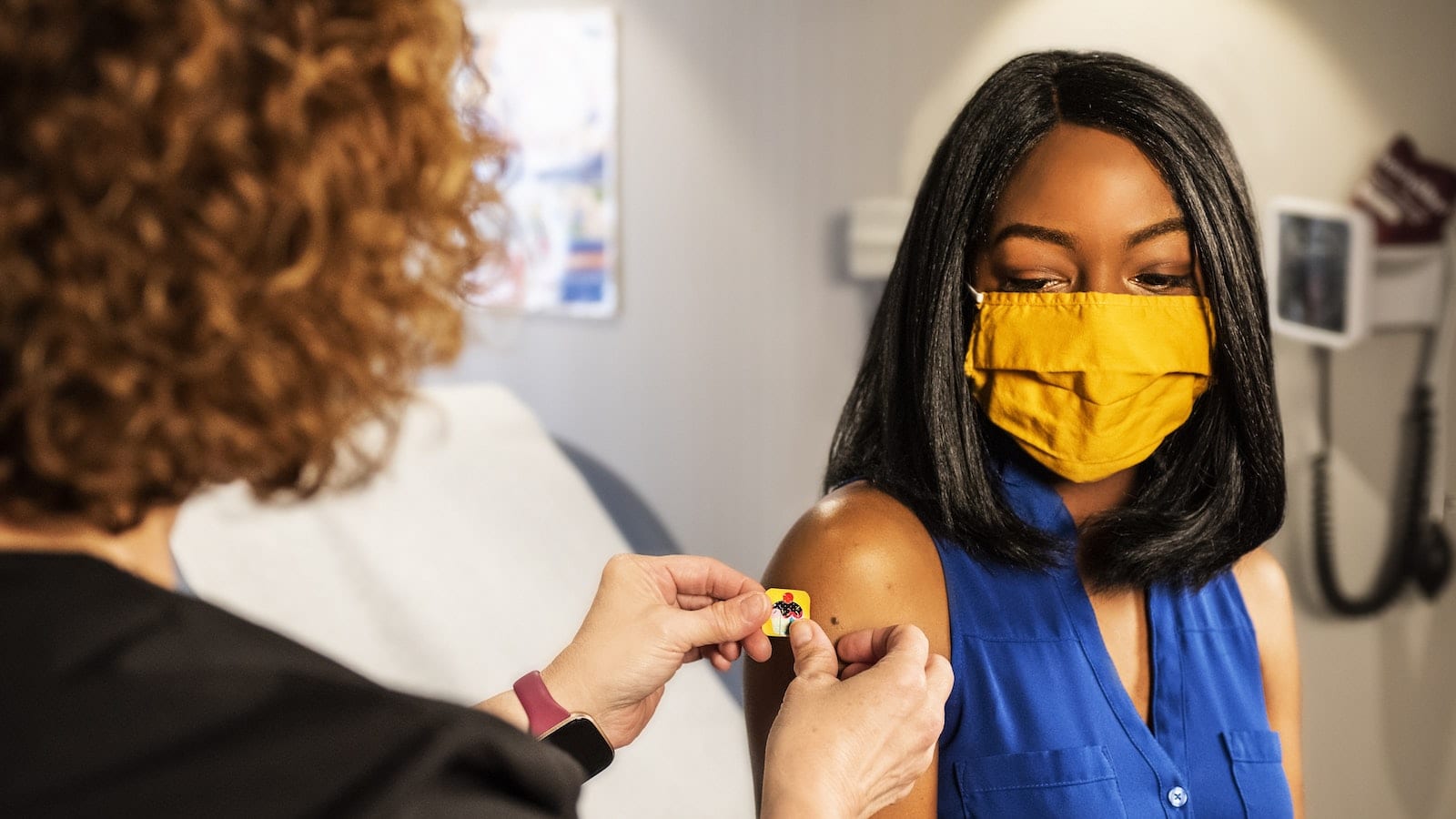UAMS Study Finds One-Third of Vaccinated Arkansans Received COVID-19 Shot Despite Some Doubts
| FAYETTEVILLE — One-third of Arkansans vaccinated against COVID-19 reported some level of vaccine hesitancy during a study conducted by researchers at the University of Arkansas for Medical Sciences (UAMS) Office of Community Health & Research.
Through the study, “Hesitant Adopters: An Examination of Hesitancy Among Adults in Arkansas Who Have Taken the COVID-19 Vaccine,” researchers found that minority populations, such as Black or Hispanic individuals, as well as women and rural populations, experienced higher levels of vaccine hesitancy. In a separate study, “Factors Influencing COVID-19 Vaccine Decision-Making Among Hesitant Adopters in the United States,” participants reported that political affiliation and distrust in government contributed toward their hesitancy and skepticism of the vaccine. Researchers also found that those who delayed health care in the past due to costs or who were unlikely to receive annual flu vaccinations were also more likely to be hesitant of the COVID-19 shot.
“Understanding what influences both vaccine hesitancy and vaccination provides valuable insight into an individual’s decision-making processes to receive the vaccine,” said Rachel Purvis, an assistant professor in the Office of Community Health & Research. “These findings can inform future interventions to increase vaccine uptake by targeting factors most likely to influence vaccine-seeking behavior among communities where COVID-19 vaccination hesitancy persists.”
Study participants reported that cultural influences — such as musicians, celebrities, media outlets and influential community members — as well as guidance from health professionals and employer mandates were key motivators to get the vaccine. Other motivators included influence and encouragement from family and social networks; the idea of returning to a “pre-pandemic sense of normal”; and stark COVID-19 outcomes, such as rising deaths and hospitalization due to COVID-19 infection.
According to the Arkansas Department of Health, 59% of Arkansans are fully vaccinated against COVID-19. About 73% of COVID-19-related deaths and 73% of those hospitalized in the state since Feb. 1, 2021, were among patients not fully vaccinated. As of Nov. 10, 2022, more than 12,500 Arkansans have died from COVID-19.
The U.S. Food & Drug Administration (FDA) recently approved bivalent booster shots for both Pfizer and Moderna, which target new Omicron variants of the coronavirus. The Pfizer booster is authorized for ages 5 and up, and the Moderna booster is authorized for ages 6 and up.
The latest COVID booster is currently being offered at all UAMS Health primary care clinics and by the UAMS Office of Community Health & Research at mobile health events throughout the state. For more information or to view the schedule of upcoming mobile health events, visit nwa.uams.edu/covid.
The study was supported by the UAMS Translational Research Institute, which is funded by the National Center for Advancing Translational Sciences at the National Institutes of Health, Clinical and Translational Science Award UL1 TR003107.
UAMS is the state’s only health sciences university, with colleges of Medicine, Nursing, Pharmacy, Health Professions and Public Health; a graduate school; a hospital; a main campus in Little Rock; a Northwest Arkansas regional campus in Fayetteville; a statewide network of regional campuses; and seven institutes: the Winthrop P. Rockefeller Cancer Institute, Jackson T. Stephens Spine & Neurosciences Institute, Harvey & Bernice Jones Eye Institute, Psychiatric Research Institute, Donald W. Reynolds Institute on Aging, Translational Research Institute and Institute for Digital Health & Innovation. UAMS includes UAMS Health, a statewide health system that encompasses all of UAMS’ clinical enterprise. UAMS is the only adult Level 1 trauma center in the state. UAMS has 3,240 students, 913 medical residents and fellows, and five dental residents. It is the state’s largest public employer with more than 11,000 employees, including 1,200 physicians who provide care to patients at UAMS, its regional campuses, Arkansas Children’s, the VA Medical Center and Baptist Health. Visit www.uams.edu or www.uamshealth.com. Find us on Facebook, Twitter, YouTube or Instagram.
The UAMS Northwest Regional Campus includes 288 medical, pharmacy, nursing and health professions students, 64 medical and pharmacy residents, two sports medicine fellows, and 1,000 community-based faculty. The campus has nine clinics including a student-led clinic and physical, occupational and speech therapy. Faculty conduct research to reduce health disparities.
